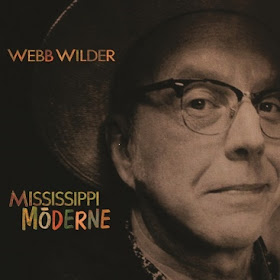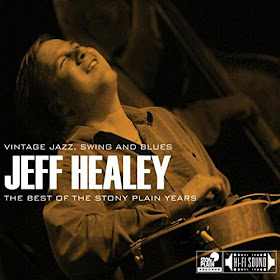If all you know of
Steppenwolf is “Born To Be Wild” and “Magic Carpet Ride,” you may consider them to be just another ‘60s-era hard rock band. During Steppenwolf’s brief initial run (1968-72), however, they often straddled the fine line between pop chart singles band and nascent FM radio rockers…sometimes they were successful, sometimes they weren’t, but it was never for lack of trying. Steppenwolf racked up a handful of Top 10 singles, and the band’s first five studio albums would all chart Top 20, with most of ‘em scoring Gold™ record status for sales.
Few American bands can claim similar chart success while still retaining a certain amount of rock ‘n’ roll street cred – only Creedence Clearwater Revival comes to mind – but, unfortunately, Steppenwolf’s contributions to this beast we call “classic rock” seldom extend beyond the aforementioned pair of hit songs. Formed in 1967 by members of the Canadian blues-rock outfit Sparrow, the core of the band was singer/songwriter John Kay, keyboardist Goldy McJohn, and drummer Jerry Edmonton. Steppenwolf scored gold in 1968 with “Born To Be Wild,” their third single, taken from the band’s self-titled debut album. Written by former Sparrows band member Mars Bonfire (Edmonton’s brother), “Born To Be Wild” hit #2 on the U.S. charts and launching the band’s lengthy career.
Steppenwolf’s The ABC/Dunhill Singles Collection
In spite of their modest success, Steppenwolf’s singles have been largely unavailable on CD in their original 45rpm mixes, an oversight corrected by Real Gone Music’s
The ABC/Dunhill Singles Collection. A two-CD set,
The ABC/Dunhill Singles Collection includes every A and B-side released by the band on the label, 30 tracks in all, as well as another eight John Kay solo tracks, making for a sumptuous hard rock feast, indeed! The set has been compiled from the best sources available (the original tapes for this material were reportedly trashed years ago), with nearly two-dozen of the tracks in their original mono mixes. Mr. Kay himself was enlisted to pen lengthy and insightful liner notes for the set. Aside from Kay’s personal memories of the songs, the set’s 24-page booklet includes rare photos and chart info.
One thing that readily apparent from
The ABC/Dunhill Singles Collection, is the band’s steady musical evolution. The band’s first single release, “A Girl I Know,” is a charming slab of period psychedelic rock with a wistful, psych-pop intro and driving rhythms, with full instrumentation backing Kay’s vocals and Michael Monarch’s swirling guitar licks. The B-side, “The Ostrich,” is a bluesy hard rocker with McJohn’s aggressive keyboard washes underlining a performance that is a curious cross between Love and the Doors.
Heavy Metal Thunder
The band’s sophomore single, “Sookie Sookie,” was a cover of a Don Covay song the R&B great wrote with Steve Cropper. Although Steppenwolf’s livewire version captured the soul of the original with Kay’s hearty vocals and screeching guitars, the song failed to chart as radio program directors between the coasts refused to play the single, not knowing (or caring) what a “Sookie Sookie” actually was. Steppenwolf definitely found its mojo with their third single, though...“Born To Be Wild” would dominate the charts throughout the summer of ’68, its lyrics coining the phrase “heavy metal thunder” while selling a million copies.
Dennis “Mars Bonfire” Edmonton’s original version of the song positioned it as a ballad; the band amped up the tempo, welded on Monarch’s legendary guitar riff, and graced the performance with Kay’s sandpaper vocals to create a rock ‘n’ roll legend. As Kay tells the story, neither the band or the label could figure out whether “Born To Be Wild” or “Everybody’s Next One” should be the A-side of the single, so they left the record unmarked and left it up to radio DJs to choose between the two songs…the rest, as they say, is history. Still, “Everybody’s Next One” is an engaging song, with a throwback melody that reminds of early ‘60s British Invasion bands like the Kinks, with Monarch’s piercing guitar licks balanced by Kay’s folkish strum, and Edmonton’s thunderous percussion.
Magic Carpet Ride
With ABC/Dunhill desperate for a follow-up to “Born To Be Wild,” Kay and band bassist Rushton Moreve swung for the fences and came up with “Magic Carpet Ride.” Another smash hit, the combination of Monarch’s innovative fretwork and McJohn’s spacey keyboard notes set the stage for Edmonton’s bombastic percussion and Kay’s growling, nimble vocals. The single release of the song offers a different vocal take by Kay, and is shorter than the album version by a couple minutes, which only strengthens its bludgeoning sonic impact. “Magic Carpet Ride” would peak at #3 and stay on the charts for 16 weeks – longer than any other Steppenwolf song – on its way to a million flapjacks sold. The single’s B-side, oddly, was the previously released “Sookie Sookie,” an act of charity, perhaps, that garnered Covay and Cropper some nice royalties.
It’s a hard to believe, in this era of artists taking two or three years to create new material, but the pace for rock bands in the 1960s and early ‘70s was brutal. Record, tour, back to the studio, and then tour some more – Steppenwolf released four studio albums in two years, circa 1968-69, a breakneck schedule that often didn’t help any band that running on that commercial treadmill. Still, Steppenwolf managed to score Top 10 again with “Rock Me,” the Kay-penned lead-off single from their third album,
At Your Birthday Party. The band’s last real chart “hit,” the song’s infectious melodic hook and up-tempo mix of solid lyricism and vaguely exotic instrumentation (slightly Latin-tinged a la Santana) made for heady radio airplay. The single’s B-side, the equally engaging “Jupiter Child,” is a muscular, mid-tempo sledgehammer of psych-drenched rock with abrasive guitars and fierce vocals chased by a heavy bass line and mortar-fire drumbeats.
The Pusher
Although Steppenwolf wouldn’t again hit the top regions of the chart after “Rock Me,” that’s not to say that they didn’t release some fascinating and satisfying singles. The anti-drug dirge “The Pusher,” written by Hoyt Axton, who may have been the first true alt-country artist, originally appeared on the band’s debut album, but earned new notoriety with its inclusion in the 1969 movie
Easy Rider. With Kay’s powerful vocals riding atop a spacey, psychedelic acid-rock soundtrack (that sounds somewhat drug-fueled itself), the song’s strong language (“God Damn the pusher man!”) caused radio programmers to run away from the song faster than an IRS audit. The follow-up to “Rock Me,” the folkish “It’s Never Too Late” is a solid effort featuring brilliant but claustrophobic “wall of sound” production that starkly underlines Kay’s intelligent lyrics. Scraps of McJohn’s piano vie with Monarch’s scorching fretwork amidst the song’s busy instrumentation.
Kay’s “Move Over,” co-written with longtime band producer Gabriel Mekler, knocked on the door of Top 30 chart success at #31, but the song should have risen higher. Kay’s hearty vocals are mixed with a memorable bass line courtesy of new band fat-stringer Nick St. Nicholas, complimented by new guitarist Larry Byrom’s wiry guitarplay. Edmonton’s timekeeping is especially noteworthy here, his steady rhythms and high-octane drum fills kicking the arrangement into overdrive. The band’s fourth studio album,
Monster, included “Move Over” and the title track, which was released as a single in its stereo LP mix. Maybe the reshuffled band line-up hadn’t had time for the individual members’ chemistry to gel, but “Monster” strains at its restraints, the band’s tentative instrumentation often at odds with Kay’s passionate vocals. While the extended nine-minute-plus track works fine on album in context with its surrounding material, “Monster” was tailor-made for AOR radio…and Steppenwolf found itself in the vanguard of the fledgling FM rock format.
Hey Lawdy Mama
Kay admits in the liner notes to
The ABC/Dunhill Singles Collection that he had run out of gas as a songwriter by the release of
Monster. As a stopgap measure, the label released
Steppenwolf Live in early 1970, Steppenwolf scoring an unexpected Top 40 hit with the band-written “Hey Lawdy Mama.” A swaggering, R&B influenced hard rocker, the tune was a favored addition to the band’s rowdy live set. Other singles from this arid period included the former Sparrow song “Corina, Corina,” an enchanting folk-rock ballad which the band re-recorded in the studio. It was added to
Steppenwolf Live along with “Hey Lawdy Mama” and other studio tracks by the label against the band’s wishes to fill out four sides of a double-album set. The band worked with new producer Richard Podolor on “Screaming Night Hog,” a bluesy rocker that features some inventive circular guitar riffs and Kay’s hypnotic harmonica licks, but the single went largely unnoticed.
After again revamping the band line-up with new bassist George Biondo, Steppenwolf recorded what would be their fifth studio effort (and seventh album overall, with two live discs under their belts).
Steppenwolf 7 displayed further evolution in the Steppenwolf sound as the other band members – especially guitarist Larry Byrom – began to contribute more to the group’s songwriting efforts. The band’s instrumental chemistry improved with the addition of Biondo as well, the bassist’s style meshing nicely with drummer Edmonton. Although the album’s lead-off single, “Who Needs Ya,” was a ballsy, free-wheelin’ rocker with an infectious chorus and gang vocals, it only peaked at #54 on the charts in spite of its charms.
 |
| Steppenwolf 1971 courtesy ABC / Dunhill Records |
Earschplittenloudenboomer
By contrast, the largely instrumental “Earschplittenloudenboomer,” with its vaguely boogie-blues foundation and uncharacteristic blasts of horn, made for an interesting B-side that displayed the band’s musical chops. Kay dipped back into the Hoyt Axton songbook again for the folk-country anti-drug ballad “Snow Blind Friend,” the song’s more gentle sound presaging the direction of the singer’s future solo work. It’s a magnificent performance, Kay infusing the song with heart and character while the band offers subtle instrumental flourishes which enhance the lyrics; sadly, as a single, it peaked at only #60 on the charts although it did receive widespread FM radio airplay.
For Ladies Only, released in late 1971, was the last Steppenwolf album before the band’s short-lived break-up. Guitarist Kent Henry replaced Byrom, who would end up in Nashville as a respected (and busy) session guitarist. A loose-knit concept album about male/female relationships with a definite feminist slant,
For Ladies Only took the band into a different creative direction, with Kay contributing only a pair of songs, along with the group-penned title track. The band tried to capture lightning in a bottle again by recording an old Mars Bonfire song, “Ride With Me,” a good hard rock number with a driving rhythm, but no discernible melodic hook to hang AM airplay onto. The album’s title track offered a twangy undercurrent beneath its guitar-driven rock ‘n’ roll trappings, Kay’s vocals easily adapting to the country-rock sound, but the backing instrumentation is too jarring and discordant for a straight country tune, yet showed a little too much twang ‘n’ bang for AOR playlists.
Forgotten Songs & Unsung Heroes
The last eight songs on
The ABC/Dunhill Singles Collection are actually John Kay solo tracks, four each culled from 1972’s
Forgotten Songs & Unsung Heroes and the following year’s
My Sportin’ Life. Recorded during the first Steppenwolf hiatus, the former album included spirited covers of country classics from the likes of Hank Snow and Hank Williams amidst harder-rocking original material while the latter album mixed Kay’s pensive originals with material from contemporary songwriters. Suffice it to say that you’ve never heard Snow’s “I’m Movin’ On” sound quite like Kay performs it, Kent Henry’s swamp-blues guitar licks matched by Kay’s hoarse vocals and a busy instrumental arrangement which walks a tightwire between blues and rock.
Hank Williams’ “You Win Again” is played more traditionally, with acoustic guitar and Kay’s soulful vocals turning the country classic into a Southern rock jam complete with gospel-tinged backing vocals. “Moonshine (Friend of Mine)” is basically a country song clad in rock ‘n’ roll garb, Kay successfully capturing the good ole boy vibe of Charlie Daniels or Waylon Jennings with the song’s jaunty arrangement and spry fretwork. Alan O’Day’s “Easy Evil” is a more considered work, with O’Day’s soulful keyboards offering a counterpoint to Kay’s breathless vocals and a Memphis/Stax Records style instrumental groove. Needless to say, none of Kay’s solo singles charted any higher than the #52 of “I’m Movin’ On,” and the erstwhile Steppenwolf frontman would reform the band around Biondo, McJohn, and Edmonton with new guitarist Bobby Cochran. The reunion proved to be short-lived, however, the band breaking up again in 1976, only to be resurrected by Kay in the 1980s as John Kay and Steppenwolf, which is where it remains today, more or less, the band performing sporadically on the oldies circuit.
The Reverend’s Bottom Line
While Steppenwolf undeniably had a signature hard rock sound, the band’s blues roots and willingness to incorporate folk and country influences into its songs displayed a deftness that belies their reputation. Although Steppenwolf enjoyed a modicum of chart success with its single releases circa 1968 to ’72, its evolution into one of the first (immensely) popular AOR bands can be seen in commercial success of their full-length albums. Even the band’s
Steppenwolf Gold “hits” compilation would chart Top 30 in 1971 and achieve Gold™ record sales levels.
As showcased by
The ABC/Dunhill Singles Collection, Steppenwolf was a hard-working outfit, cranking out tunes on demand for a demanding label, more often than not with positive commercial and creative results. This two-disc set is a fine addition to the long-suffering Steppenwolf fan’s collection, providing long-lost mono mixes of those early AM radio hits alongside stereo mixes of the band’s harder-rocking AOR tracks (as well as Kay’s obscure solo sides). With much of Steppenwolf’s back catalog a literal label afterthought (comprised entirely of budget CDs from the 1980s),
The ABC/Dunhill Singles Collection is like an early Christmas present, the set hopefully kick-starting a reconsideration of the legacy of this too often overlooked band.
Grade: B+ (Real Gone Music, released August 14, 2015)
Buy the CD from Amazon.com: Steppenwolf's The ABC/Dunhill Singles Collection
















